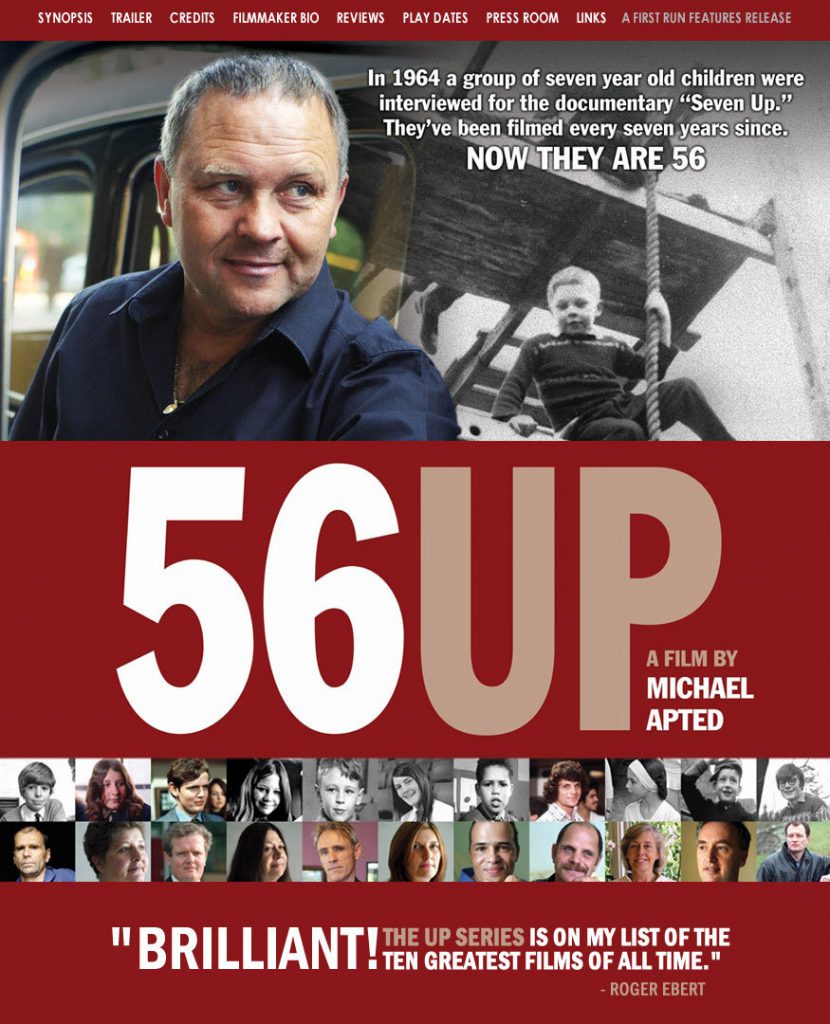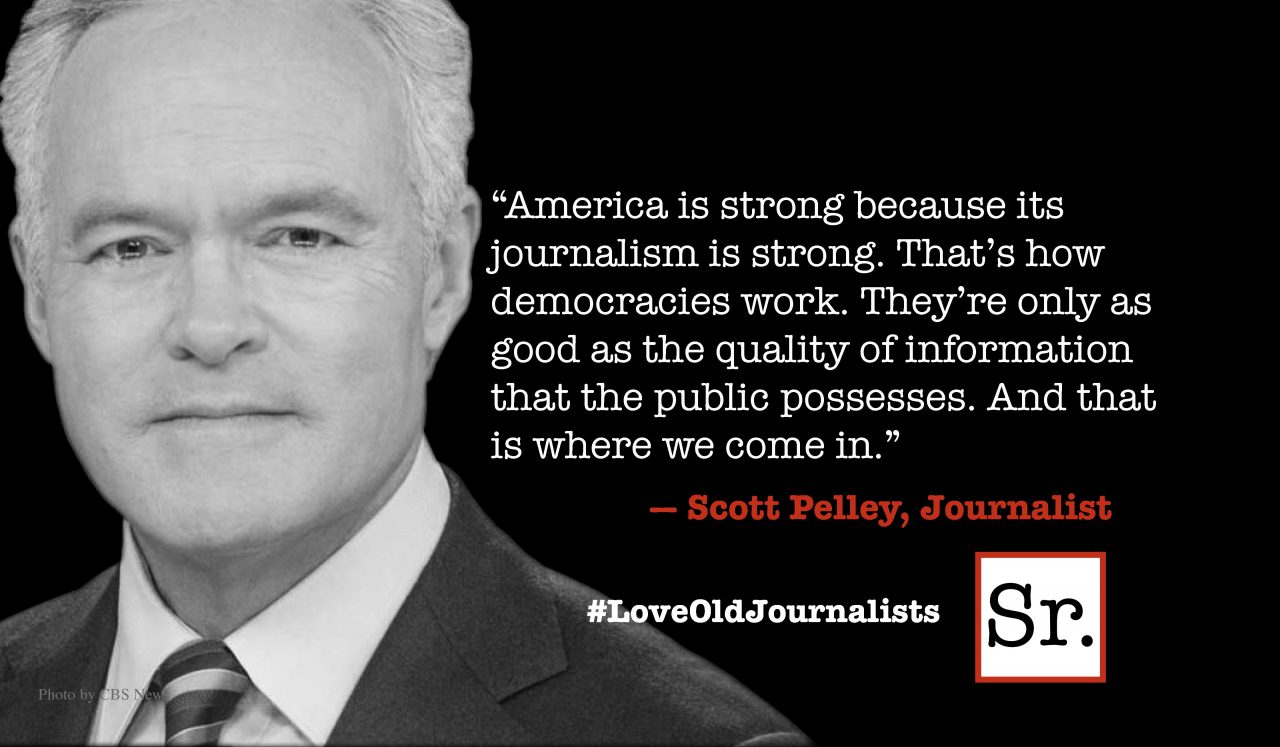Every seven years for the last half-century, director Michael Apted has turned his camera on a group of former British schoolchildren he first encountered in 1964 when they were only seven years old and he was an assistant with the BBC.
The idea back then was to take a dozen or so kids from all sorts of social and economic backgrounds and follow them for … well, for as long as they would tolerate it. There undoubtedly were political/sociological gears turning behind the project — one suspects the creators of the “7 Up” series envisioned it becoming an indictment of the British class system.
But over time it has become something even more powerful … a study of the stages of life we all go through, of marriages and divorces, careers established and lost, of becoming parents and losing parents, of love and loneliness, wealth and poverty.
Now we have “56 Up,” with the 14 former children now on the brink of senior citizenship.
The methodology of this latest installment is familiar. Apted intersperses fresh footage and interviews with material stretching back 49 years. The result is a sort of time machine that allows us to watch heads gray and flesh sag. Certain of these subjects remain particularly compelling and troubling. Like Neil (last names aren’t used), who over the years has spent time as a homeless wanderer. He’s a sad figure, intelligent enough but with some sort of mental/emotional baggage that has kept him from ever holding a real job. He’s found modest success as a neighborhood politician who has been elected to various boards and governing bodies. Most recently he has become a lay priest, conducting services in a small town.
Neil says that over the years he has had intimate romantic relationships, but that they’ve all ended. He adds, heartbreakingly, that he was never the one to walk away.
While Apted’s upper-class subjects seem to do well economically (the rich do get richer), others have been hurt by the economic upheavals of the last few years. Some have seen their jobs vanish and their pensions reduced. They’re looking forward to Golden Years of struggle.
But one of the really fascinating things about “56 Up” is that so many of Apted’s subjects are willing to talk about the effect on their lives of being part of this documentary experiment.
One fellow explains that he dropped out of the series in his thirties because of the harassment he received over his on-air criticisms of the Thatcher government. Only recently has he felt inclined to rejoin the fold. Of course, he also wants to use his notoriety to promote his country band.
And then there’s the former scientist at the University of Wisconsin who details the fallacy that you can grasp what a person is about by following him around for a week every seven years and editing the resulting footage to highlight his most interesting/incendiary comments.
But even as he highlights the inadequacy of this grand project, he admits that the “7 Up” series does one things spectacularly well — it shows us all just what it means to be human, to experience the universal triumphs and tragedies of life.
Little of what we see in this series is earth shaking. Much of it is familiar precisely because as varied as we are, all share certain things, yearnings, life experiences.
In the end, then, “56 Up” is a profound statement about being human.









